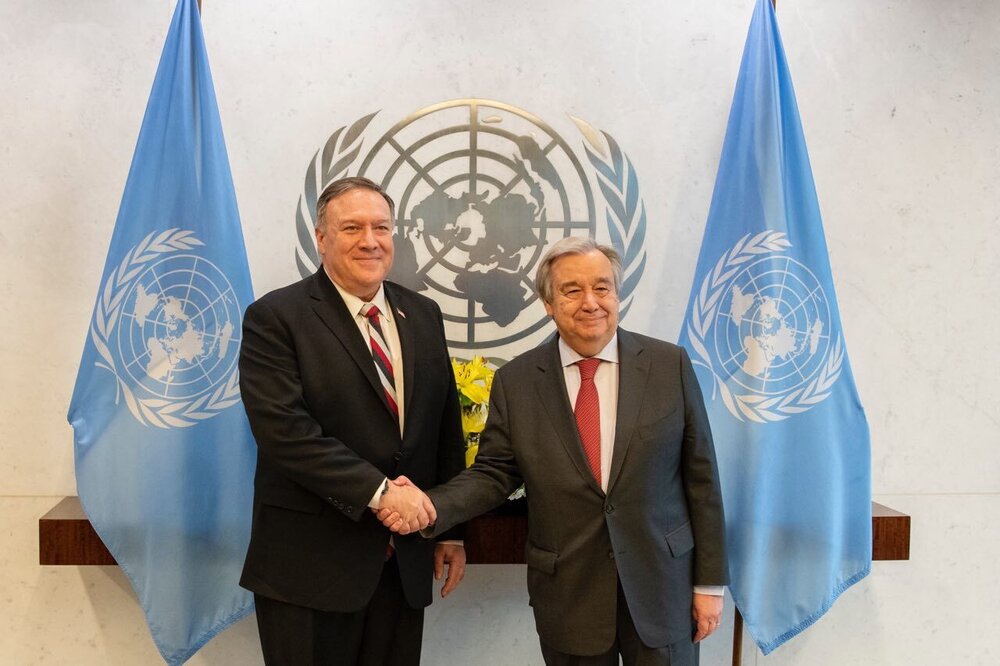TEHRAN - Iranian analyst Pir Mohammad Molazehi has said that the United Nations has adopted position on Saudi oil attacks in November 2019 under the influence of the United States.
“It seems that the United States benefits from report of the United Nations Secretary [General Antonio Guterres], because when the secretary general announced that the missile had Iranian origin, it means the United Nations wants to accompany the United States,” Molazehi told IRNA in an interview published on Monday.
He noted that the U.S. seeks to take the case to the UN Security Council to extend arms embargo on Iran.
UN Secretary-General Antonio Guterres told the Security Council in a report seen by Reuters on Thursday that cruise missiles used in several attacks on oil facilities and an international airport in Saudi Arabia in November 2019 and February 2020 had been of “Iranian origin”.
He also said the “items may have been transferred in a manner inconsistent” with Security Council Resolution 2231, which enshrines the international nuclear deal – officially known as the Joint Comprehensive Plan of Action (JCPOA) – signed between Iran and world powers in 2015.
Guterres said in his report that the United Nations had examined the debris of weapons used in the attacks on an oil facility in Afif in May, the Abha international airport in June and August, and the Aramco oil facilities in Khurais and Abqaiq in September.
The Permanent Mission of the Islamic Republic of Iran to the United Nations has rejected the UN secretary general’s report on the implementation of the Security Council resolution 2231 as flawed and inaccurate.
In a press release on Friday, the mission said that the UN Secretariat lacks the capacity, expertise, and knowledge to conduct such a sophisticated and sensitive investigation.
Foreign Minister Mohammad Javad Zarif has rejected claims that Iran was behind attacks on Saudi oil installations as “unfounded”.
“Such claims are unfounded and unfortunately, the United Nations secretariat has shown that it is influenced by the United States’ threats. The region is in critical situation. It is wise for the regional countries to hold talks about future rather than to be imprisoned in the past,” he said during an interview which was held live on Instagram on Saturday.
He also said, “In the first year that I became the foreign minister, I told Saud bin Faisal, the late Saudi foreign minister, if he wanted to complain about the past. I told him be sure that we have more to complain about, however, we can talk about future.”
Zarif also noted that it will be possible to reach a solution and an agreement in the region if the regional countries understand that the U.S. will not stand beside them and just seeks to empty their pockets.


No comments:
Post a Comment